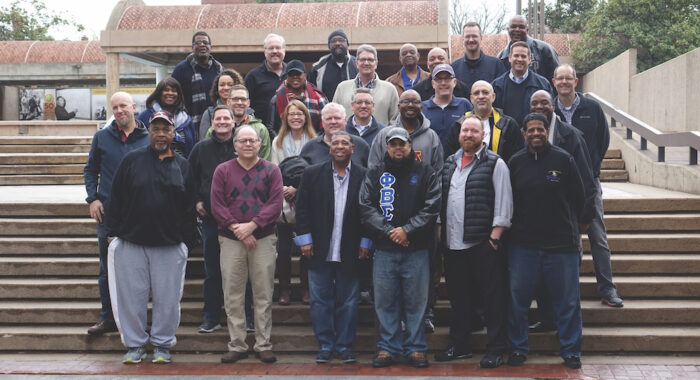Spiritual leadership in the New Testament carried with it a voice of authority that makes many of us uncomfortable today.
When Paul opposed Peter “to his face because he was clearly in the wrong” (Galatians 2:11), did Peter feel that he had experienced what we now call “spiritual abuse?” When the same Paul refused to include John Mark on his team for their second church planting tour (Acts 15:38), did the young leader feel like he’d experienced “church hurt?”
These questions may strike some as odd, yet these scenarios, recorded for us in the Holy Scriptures, give evidence that conflicts and confrontations have been part of church life from our earliest days.
When Paul addressed the Corinthian believers as “worldly” and “mere infants” (1 Corinthians 3:1), he certainly wasn’t creating a “feel good moment” for the flock he loved dearly. He evidenced that sharp words were needed to capture their attention and press them toward greater maturity in Christ.
High Standards of Accountability
From my vantage point as a denominational president, the present-day Church is in a particularly difficult moment in time to uphold high standards without being perceived as heavy handed, controlling, or even abusive. For a church leader to confront a member is often not received well.
Granted, church leaders today don’t always handle such scenarios well. Too often we have been heavy handed and even abusive. For this we must repent and take a humble posture. Yet I fear that too often, out of fear of retaliation, we’ve said nothing to the faltering saint.
In some sectors of the Church, we too rarely heed the closing words of James’ epistle, “…if one of you should wander from the truth and someone should bring him back, remember this: Whoever turns a sinner from the error of his way will save him from death and cover over a multitude of sins” (James 5:19–20).
In our desire to pastor well, love everyone, grow our church, and accomplish our mission, we must not abandon grace-filled, carefully spoken, humbly approached words of correction. Simultaneously, we as leaders must create a culture where such words can be safely spoken to us. No leader is in the place to give correction who is not welcoming of the same. Too often, church leaders have positioned themselves in such a way as to be unapproachable and unrebukable.
The Remedy of Hard Conversations
The cultural moment in which we find ourselves requires careful nuance from leaders and congregants alike. Church hurt is real. Spiritual abuse has been far too common. Controlling leaders — often operating out of fear and insecurity — have left too many wounded, isolated from the Church, or abandoning the faith.
Yet, to overreact and never engage in the hard conversations is the wrong response. Leader to leader, congregant to congregant, congregant to leader, or leader to congregant, hard conversations are often essential. All of these have a place in Christ’s Church … and all are fraught with potential pitfalls.
Before initiating such a conversation, we’re wise to differentiate between behaviors and motives. While it is a legitimate role of the Body of Christ to call one another to account for our words and actions, we complicate (and even undermine) the conversation when we assume negative motive. The classic biblical example of this is when the young David was sent to the battle line to bring supplies to his brothers. Upon arrival, he inquired about Goliath. David’s oldest brother condemned his curiosity, quickly turning his comments to scorn for David’s heart as being “conceited” and “wicked” (1 Samuel 17). Conversely, we do well to “assume good intent.” We may not like what was said or done, but if we take the posture that they meant well, it changes the nature — and often the outcome — of the necessary confrontation.
One more biblical example of conflict is poignant to this theme: Jesus’ confrontation of Peter in Matthew 16. Peter has plummeted from the high moment of declaring, “You are the Christ, the Son of the living God” (v. 16) to the jarring rebuke from our Lord, “Get behind me, Satan” (v. 23).
This is obviously an intense moment for Peter that could have left him feeling cast off by the Lord. Yet, six days later, we find Peter invited into one of the most powerful scenes of the New Testament — the Transfiguration. This story reveals that our Lord Jesus Christ was able to have the most difficult conversations with his disciples without alienating or damaging them. He’s the perfect example of the powerful, balanced strength that comes from being “full of grace and truth” (John 1:14).
May God grant today’s Church the same “grace and truth” balance incarnated by our Christ.
John Stumbo has served as the president of the U.S. Christian & Missionary Alliance denomination since 2013. Most of his 35 years of ministry have been as a pastor, including at Salem Alliance Church in Salem, Oregon. He has written several books, “God in You: A Conversation,” “In The Midst: Treasures from the Dark,” and “An Honest Look at a Mysterious Journey.” He received his B.A. in Bible and theology from Crown College and his M.A. in missiology from Columbia International University. He earned a D.Min. in leadership and the emerging culture from George Fox Evangelical Seminary.




 View All Articles
View All Articles 





























